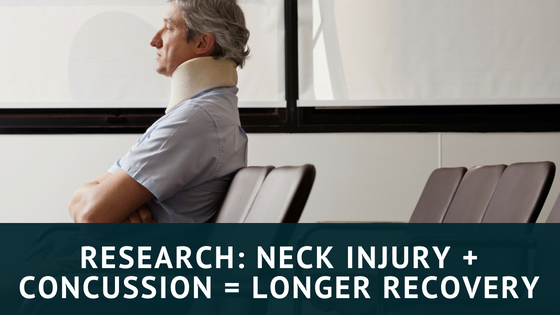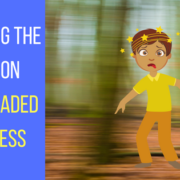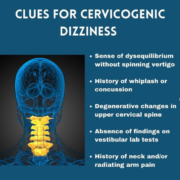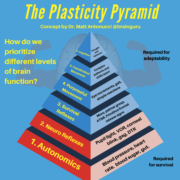New Research Shows Concussion + Neck Injury = Longer Recovery

If you’re a reader of our blog, then you’re aware of our stance that an injury strong enough to concuss is strong enough to also injure the neck. You can read some of our thoughts on this subject here:
2 Reasons Why Your Concussion Symptoms Aren’t Going Away
Head Injury, Chronic Dizziness, Concentration Problems, and the Atlas – A Case Study
What a 10 mph car accident does to the neck
You can find a lot more by using the search tool on the website, but that should get you started.
After years of research, we now know that injuries to the neck can mimic symptoms seen in concussion. This is a big reason why patients with chronic whiplash look really similar to patients with post-concussion syndrome when you’re just looking at symptoms alone [source]. However, many clinicians have suspected that when patients have both a neck injury and a brain injury, that it can take longer for the patient to recover and return to sport.
A study published in the Journal of Head Trauma Rehabilitation is helping to shed light on this concept. THe study looked at patients in a multidisciplinary pediatric concussion clinic with sports related concussion. A total of 246 patients were included and were assessed for neck pain, headache, dizziness, and abnormal cervical spine exam findings. Out of the 246 patients with concussion, 80 met the criteria for a neck injury.
When reviewing the data, the authors found that patients with a neck injury took an average of 28.5 days to make a clinical recovery compared to 17 days for the patients who only showed physiologic brain injury alone. Patients with neck injury were also almost 4 times more likely to experience delayed recovery (longer than 4 weeks) from their symptoms.

So just to summarize, if you have a neck injury + concussion:
- It will take on average 10 days longer to make a clinical recovery than a concussion alone
- You are 4 times more likely to have symptoms beyond 30 days than a concussion alone
So you might be saying….well…maybe some of these neck injuries were really serious ones. Like the ones you might see where people have to wear a neck brace and get carted off the field. Obviously people with severe neck and spinal cord injuries can drastically skew the number of days it takes for people to recover and some may not recover at all.
The authors actually accounted for these types of injuries. One patient had a compression fracture and 5 patients had spinal cord injury or cord neuropraxia. All of these patients were taken out of the data analysis. So that leaves us with patients with a neck injury, but an injury that compromises the spinal cord.
Protect the Neck
The role of the neck has become a growing area of research in the field of head trauma. One study looking at the relationship between neck strength and risk for concussion showed that for every pound of increase in neck strength, there was a 5% reduction in risk of concussion. Another study shows a rehabilitation program that includes treating the neck in patients with post-concussion symptoms can accelerate a patients return to normal activity.
The neck is a neurologically important and inherently mobile area that can be prone to injury. When it is injured, people with a combination of brain and neck injuries may have higher levels of sensitivity than patients with more routine neck pain. That means that people who suffer concussions and neck injuries may benefit from more precise and gentle care than approaches that take a more aggressive style of treatment.











Leave a Reply
Want to join the discussion?Feel free to contribute!